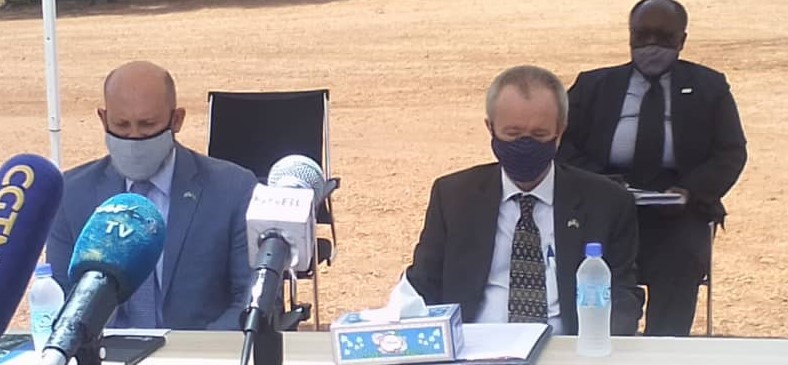The United States government on Thursday announced a donation of US$95 million to the UN World Food Program (WFP) to help fight hunger in South Sudan.
This funding includes more than $52 million from the US Agency for International Development (USAID) and nearly $43 million from the U.S. Department of State. It brings the total US humanitarian assistance to more than $482 million so far in Fiscal Year 2021.
The US says the money will assist those affected by the ongoing political conflict, extreme food insecurity including likely famine in the country this year.
Speaking to reporters during the announcement of the funding at the WFP Compound in Juba, the US Embassy Chargé d' Affaires in Juba, Ambassador Larry André Jr said the United States and South Sudan’s government are working hard to ensure unhindered access of humanitarian aid to those who are in need.
“The United States greatly appreciates the partnership with the people of South Sudan and with the UN agencies, World Food Programme and the United Nations High Commissioner for Refugees in responding to this urgent situation. The United States is working with government authorities at all levels to ensure free and unhindered delivery of humanitarian assistance to those who needed it most," Ambassador Larry said.
For his part, the WFP country representative in South Sudan, Mathew Hollingworth said the donation comes at the right time and will be used for fighting a growing humanitarian situation among most communities in South Sudan.
“The donation that the Ambassador has announced is going to be used and has in some cases already started to be used. The support is for resilience-building activities. The activities that will run in rural communities and other urban communities to try and help communities and people to get back on their own two feet to support themselves to make a living for their own families,” Hollingworth said.
The latest Integrated Food Security Phase Classification (IPC) assessment this year warns that 7.24 million people will face severe acute hunger at the height of the lean season in July, while 1.4 million children will be acutely malnourished.
According to the report, unprecedented floods, the impact of COVID-19 on the lives of the poorest people and increased conflict over the last two years have taken their toll on the world's youngest country.




